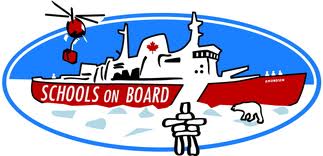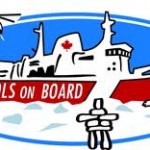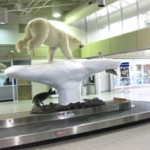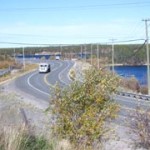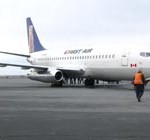September 30, 2011
This morning, we had a presentation on physical oceanography, which includes the study of waves and currents. We learned about how water circulates between the Atlantic, Pacific, and Arctic oceans, and how climate change can drastically change this. I like physics, and it was interesting to see how it can be applied to climate change.
The scientist then showed us the Rosette, a piece of equipment that samples ocean water at different depths. He showed us the probes it has to measure temperature, salinity, pH and fluorescence. They lower it into the water with a winch that has 3km of cable. It is the most important tool on board in terms of the ship’s scientific operations, because all the scientists need to know characteristics of the ocean water from which they are sampling.
Later on, I looked at a variety of zooplankton under the microscope. I admire the patience that the scientists have, closely examining each creature and trying to determine what species it is.
We also listened to a presentation about microbes in the ocean. They do not know much about what is found in the ocean because most of the bacteria they find cannot be cultured. I love finding out about everything that there is still left to discover. —Karen Butt’12

